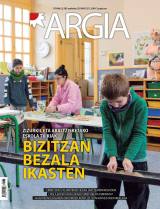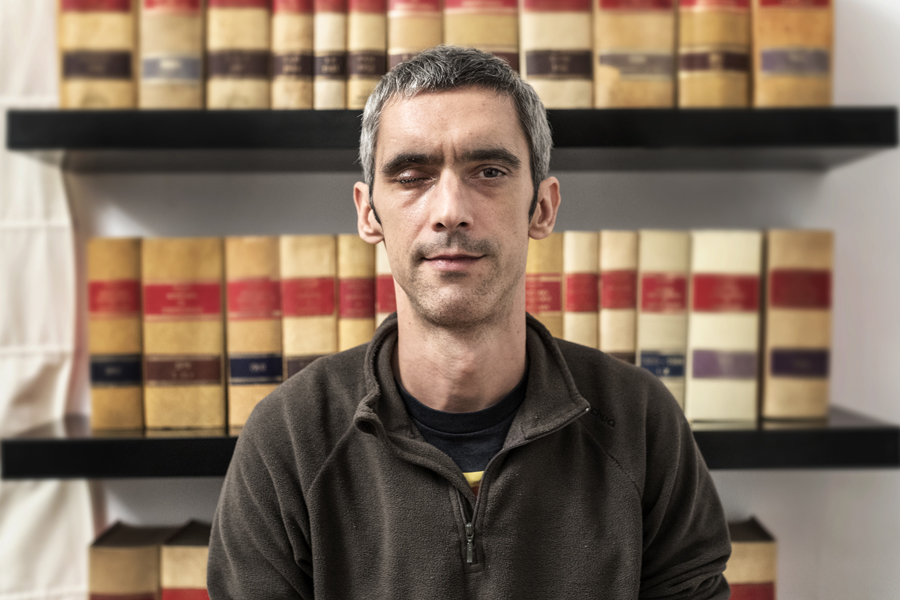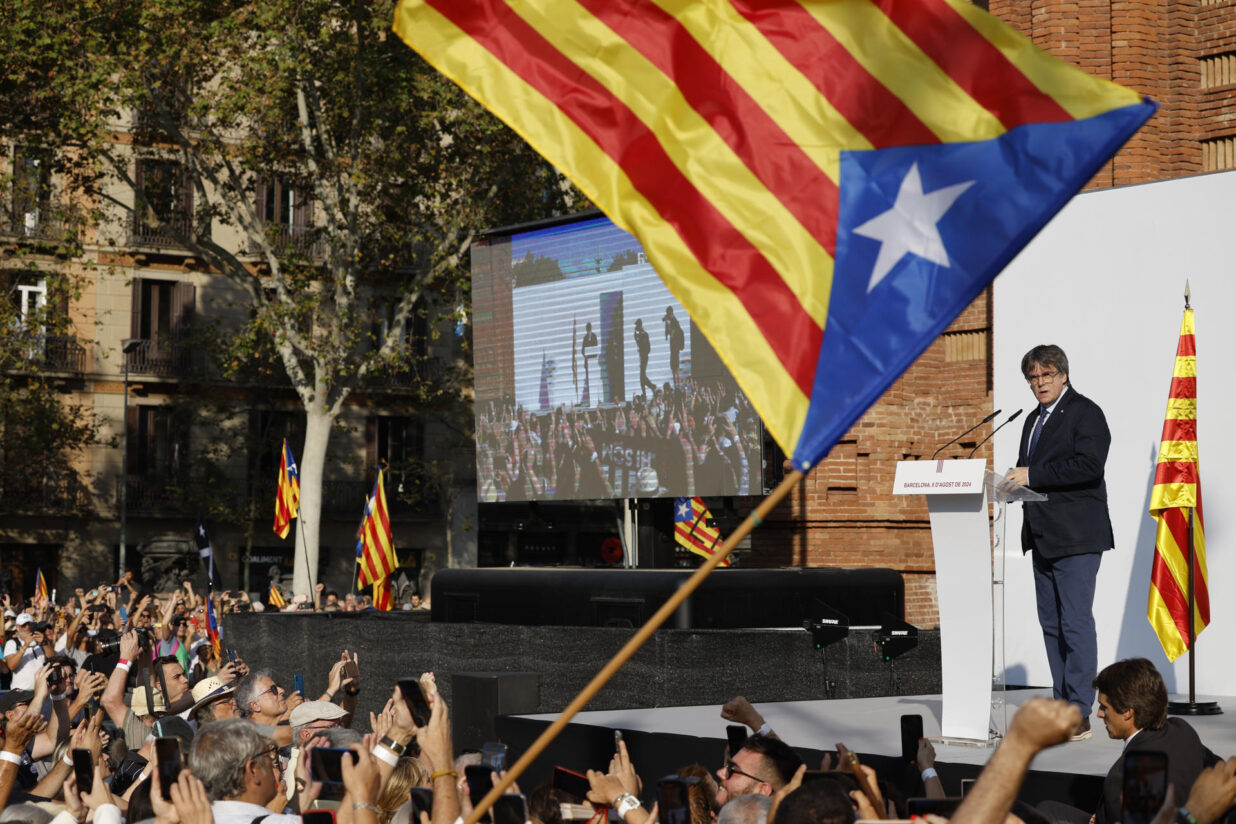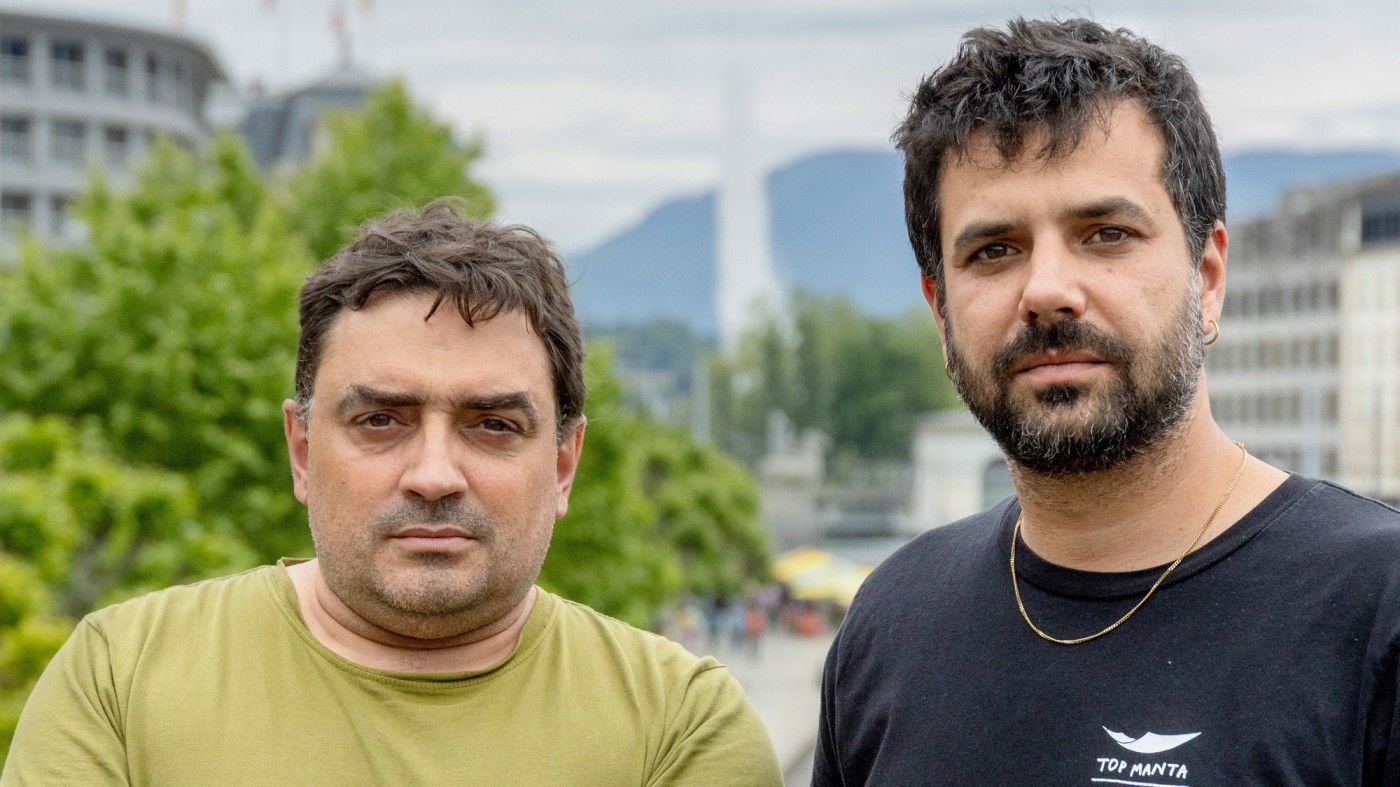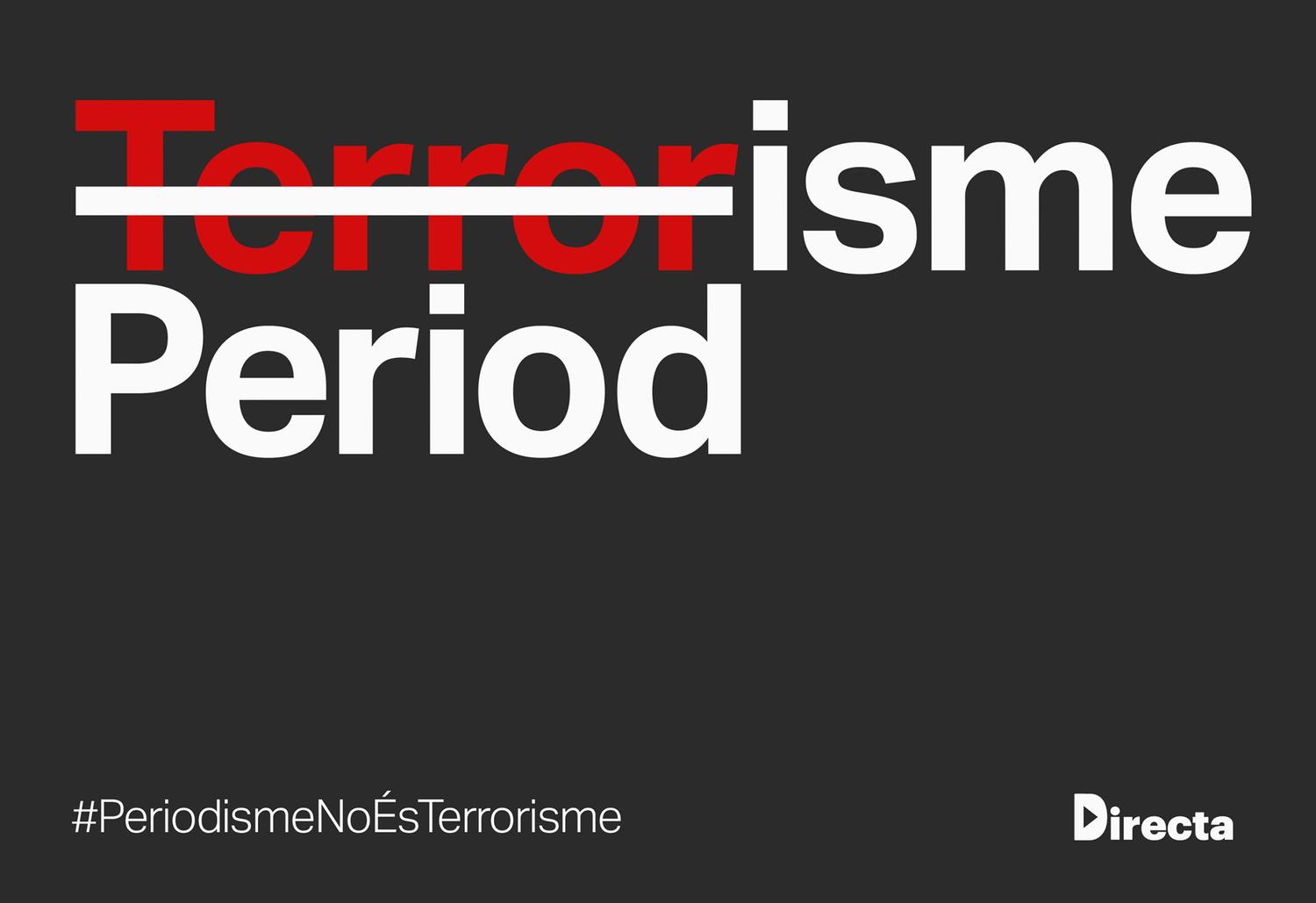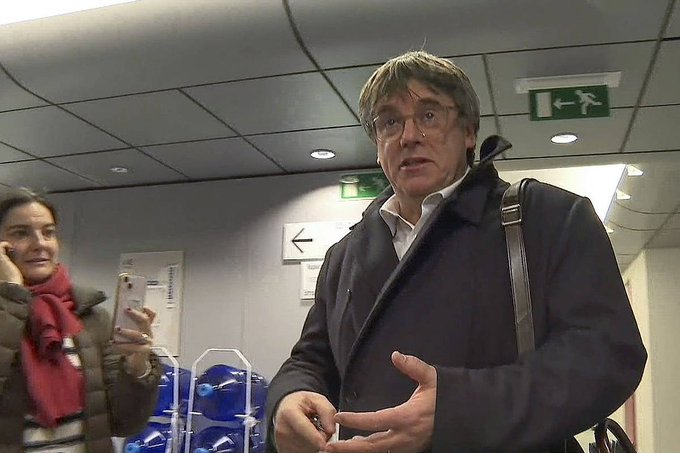How to make feminist politics in a city hall?
- Isabel Vallet and Georgina Monge are members of the Cup and with them we have analyzed how the feminist perspective works when moving from the discourse of the construction of a feminist republic to political practice. The Cup governs 32 municipalities, and we have been underlined that, although much work has been done, there is a lot of work to be done.
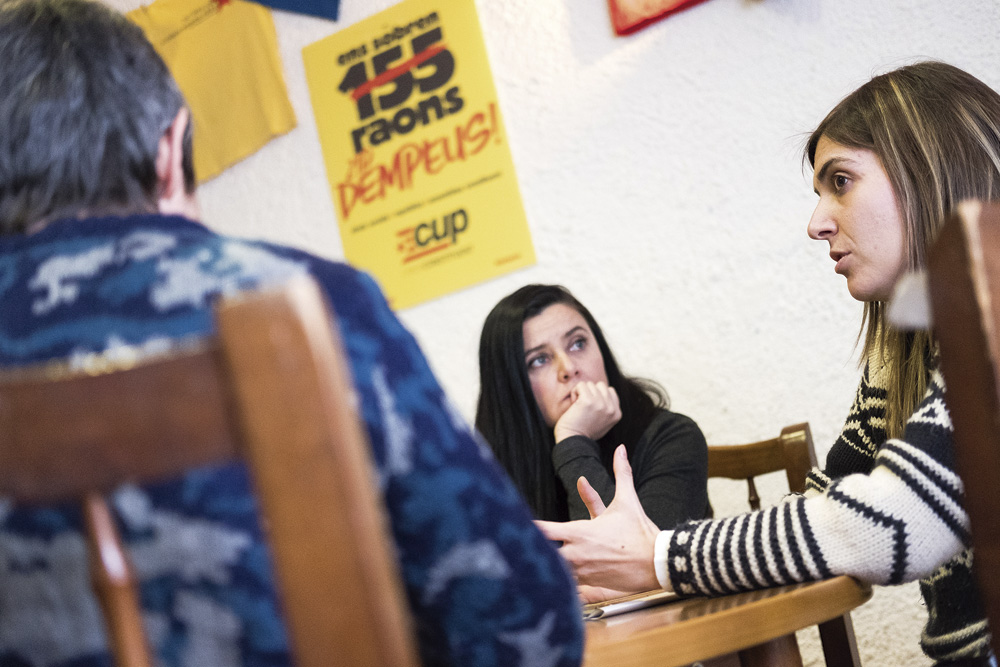
Isabel Vallet is a member of the Cup and the Endavant movement. The Cup was a member of the Catalan legislature in which it was first presented at the Parlament between 2013 and 2015. Georgina Monge belongs to the political party Crida per Sabadell, which supported the Cup in the referendum on independence in Catalonia. This party is ruling in the City Hall of Sabadell. He is also a member of the feminist group Justa Revolta.
This is how we asked the Contertulians, to see if the feminist force is drinking in Catalonia along with the effervescence of independence. The rise of the feminist movement has not been placed next to the procés, but two facts have been highlighted: the movement for the right to abortion, motivated by the proposal of former Spanish Minister of Justice Alberto Ruiz Gallardón to modify the Organic Law of Sexual and Reproductive Health; and the Law of Parity. The Constitutional Court has partially suspended the law. The feminist movement saw the CUP as a useful tool to act at the political level. From the point of view of the institutional achievements, the first legislature was more symbolic and, on the contrary, strong from the point of view of the struggle. Vallet is very different from the second legislature. More than Parliament, the work of the municipalities took hold. In total, there have been 32 municipalities in which it is governing. They left the symbolic reflection on feminism in the background and began to work measures to improve the living conditions of women in practice. “That’s much more difficult,” says Vallet, “because you have to talk about reproductive work and care, you have to take steps to get rid of women’s responsibility and socialize them, you have to analyze public services, we want to work municipalities…”
Feminist city councils use the term and, as indicated in the political programme, one of the most important tasks is the recovery of sovereignty. We are proud of food, housing, energy, employment, culture, participation and reproduction. Here, for example, one of the great difficulties they encounter in municipal management: each one of these sovereignties forms a section and gender issues are concentrated in the section of reproduction. Monge says: “Gender crosses all other sovereignties, but we find it hard to understand that, gender issues accumulate in the gender bag.” The difficulties in making gender policies in municipalities are very varied. Many municipal workers do not have gender education or a desire to learn and educate often; there is no money to hire more staff; they have problems with competition with the Spanish state. An example of this is that the City Council wants to outsource a worker and wants to know whether the company that is going to subcontract pays the same wage to the workers. Well, the company may refuse to provide such information, it is not bound by the legislation of the Spanish State. Speaking of difficulties in making feminist municipal policies, the interlocutors have given us significant data, none of the 32 municipalities that govern has a surplus. “I envy you,” they say.
The councillors of the political group Crida per Sabadell reflected on the self-exploitation of this political office from a feminist perspective
Despite the difficulties, what actions are being promoted in municipalities? We have been grouped together by the simplest and most difficult tasks. The simplest: courses of masculinity for men, protocols of sexual assault at parties, plan of co-education in nurseries... Much more complicated, among them some of the ones mentioned by Vallet: design of public services, municipality, elaboration of municipal budgets from a gender perspective...
In the speech, maybe not, but they recognize that they have huge deficiencies in political practice and in their feminized organization, a lot to do, but to make it tremendous.
The age of Anna Gabriel and other women
They have given us some information. Women account for 30 per cent of the independence left militancy, and it costs them much more than increasing their numbers. On the contrary, women were 52 per cent and men 48 per cent on the lists for the last elections. Vallet has carried out a review by legislature and by the PSE’s trajectory. In the first legislature, the Cup had a male face, headed by David Fernández. The Political Party tried to have more than one instead of creating a single public profile, but it was not well received by the media. In addition, women won nothing when they managed to visualize the second side of the Cup, as the second one in the queue was also a man. The second legislature has acted differently. In addition to Anna Gabriel, who has been the public head, other women have had a broad presence in the public space. They are convinced that in the second legislature the number of militant women has increased, as they have seen movements and women making politics for their feminist discourse. For his part, Valls has stated that it is no coincidence the treatment that these women who have been in the front line have received from public opinion.
In the 2015 elections, the Cup, for its part, went back. The list heads of the four provinces were men. They received criticism and say that they are legitimate. The political movement justifies the fact that there is no executive council with few members to elect the list heads, who are elected by hundreds of militants, most of whom are men. Political positions in municipalities are also mostly men and in general men have more informal power than women. In the 2017 elections, two candidates, two men and two women, among others, have been nominated.
One thing is the system of representation in the face of elections and the other is what the Cup does in the face of home. The organization has established gender quotas.
Question the model of “self-exploited” councilor
When we asked him about measures for women to behave in politics, Monge insisted that he has a son of almost a year, because he knows what it is about. In the national assemblies they have a library service, not in the provincial ones, and in some municipalities they do not. At home, in Sabadell, you have this possibility. She added that such measures are often taken for mothers and should not be taken, as care is not only the responsibility of women. In this sense, he has recognized that it is difficult for him to combine militancy with being a mother.
In the elections of 21 December 2017, the list heads of the four provinces have been men. They have received criticism
and say that they are legitimate
Monge tells us an example of what happened in the City Hall of Sabadell. The councillors of the political group Crida per Sabadell began to reflect on the self-exploitation of this political office. In other words, the councillor must be available 365 days a year, seven days a week and 24 hours a day. If this only form of politics was taken into account, they were given a profile of very specific characteristics, that of always: man, a family that is carefree or acts as if it were not, and a middle-aged family. How can we reconcile the life cycle with politics, what can we do to bring mothers closer together, not only mothers, but also people with little education for politics? Precisely, in the course of the reflection, the councilwoman for Equality became pregnant for the second time of the young woman. The same question asked who was going to be a mother: How am I going to be a councillor when I have a second child? We do not know whether she will continue to be a councillor when she is a mother. After the debate on the political office, no concrete decisions have been taken, but it was in the view of our partners that it was very important to put this issue on the table. Vallet puts an end to this: “I myself served as a woman’s deputy in the first legislature, was a mother and wanted another care for the child.”
Clearly, there is a long way to go, our interlocutors say that they are learning and that the feminist republic is being built step by step.
What do men say?
The former MEP of
the Isabel Vallet Cup has denounced that the groups of men and women, all popular movements, have serious shortcomings in terms of feminism. At the theoretical level they do not have a significant gap, but it is difficult to advance in feminist political practice. Militant women and men are members of patriarchal society and ending patriarchal education requires another education. Vallet also participates in the Endavant movement, where militant men are forced to receive masculinity classes. The Cup is on track to do the same.
According to Georgina Monge, some things are working very well and others are not. He believes that in political practice the idea that feminism has to be a transversal axis is being done very well. He has given two examples of very different relevance. On the one hand, the political representatives of the Cup talk a lot about women, and on the other hand, there is no man in the party who doubts that feminism must be developed in the political programme. In which areas do they have resistance? Well, when they start talking about male violence inside the house. It is difficult for them to include action plans to avoid violence in social movements, “because we are not questioning the attitudes of men in society, we are talking about the behaviors of men in our movement”. Another difficult task is to put an end to the male conception of politics. Monge is not talking about the number of men and women of political representatives, but about the difficulty of turning feminism into a violation of politics. One example: in municipalities that govern with political partners, it is very difficult for them to bring gender issues to the forefront, they are never priorities.
Lau agenteak lesio-delituengatik ikertzen ari dira eta horrek galarazten du 2024ko amnistia aplikatzea. Polizia horietako batek, ustez, gomazko bala batekin begi bat zartatu zion Roger Español kataluniarrari.
Walk from a train station, two friends and a hug. This hug will be frozen until the next meeting. I'll come home, he'll stay there. There, too, will be free the painful feeling that injustice wants us to catch. Jesús Rodríguez (Santa Coloma de Gramenet, 1974) is a journalist,... [+]









